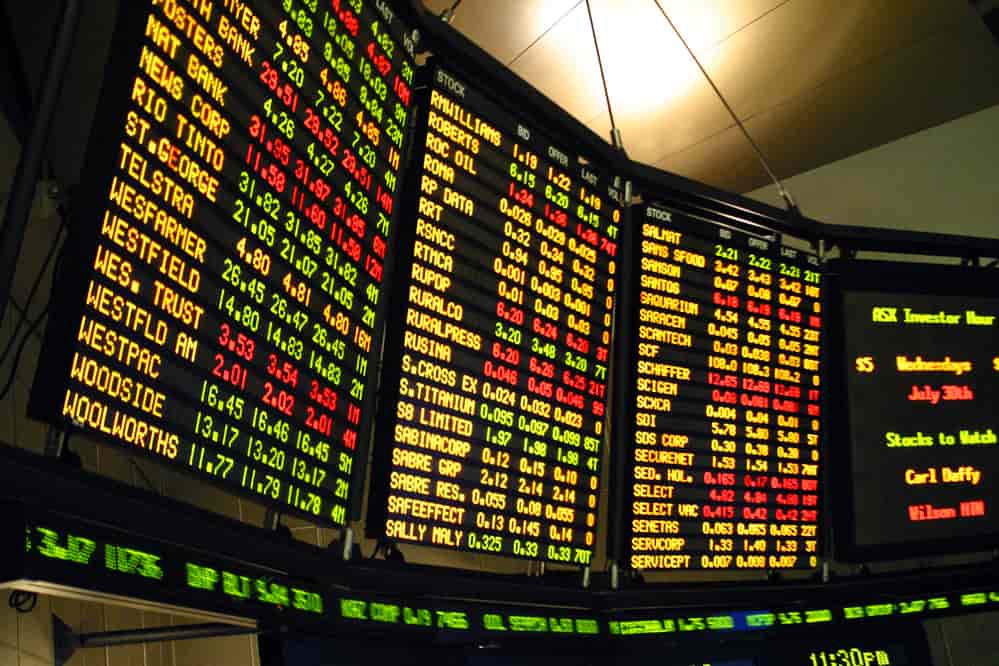
Stock Market Basics for High School Students
Do you have a company whose products or services you admire and wondered how you can be part of their success? Then, if you want to be more than just a fan, you can purchase shares in their company and become a partial owner of the company.
The stock market is fascinating and dynamic. With so much to learn, here is an introduction to the stock market for high school students.
Stock Market for Absolute Beginners
To understand the stock market and how it works, it’s best to start with the basics. A stock is a portion (or share) of a publicly-traded company and its assets. Companies issue stocks to raise money, or capital, for their business.
Stocks are bought and sold at a stock market, which is a group of exchanges, like the Toronto Stock Exchange and the New York Stock Exchange. Each exchange offers specific stocks to be bought and sold. They may also offer a Market Index, which is a group of stocks, such as the TSX and the S&P, that are bought and sold as one unit.
A stockbroker, sometimes called a stock trader, is licensed to trade stocks and other financial products at an exchange, often on behalf of their clients. Stock trading is the process of buying and selling stocks through a stock exchange.
Like an auction, the price for stocks depends on the supply (how many are available) and the demand (how many people are interested in investing in that stock). Independent Financial Advisors who are licensed also work with the clients to build their stock portfolio, which is the listing of stocks the investor owns.
Stocks can also be traded online through an Online Brokerage Account. Companies like Questrade essentially become brokers for individuals who want to choose when, what, and how much to trade. These are considered self-directed investing accounts because the investor is in charge of the decision-making and transactions. Because of this, fees can be nominal, or there may be none at all.
To open a trading account, you will need to be the age of majority in your province, which is 18 or 19 years of age. However, high school students can take part in investing as long as they have a guardian or parent who is over 18 open the account for them and make the transactions on the teen’s behalf.
Is it Good to Invest in Stocks?

It’s best to think of investing like saving, where the result is to use your money to make more money over time. Betting on risky ventures, like stocks that widely fluctuate and cryptocurrencies that have no assets or company backing them, can be a recipe for disaster. You need to weigh the risk with the return and decide how much risk is involved in your stock choices.
Average stock returns are about 10% per year, about 10x higher than the average savings account, making it a profitable investment strategy. However, you need to consider the market changes, year over year.
In some years, the increase can be high, around 30%. Whereas in other years, the market can decrease overall, and the rate of return can be less than 10%. With that being said, you can’t always expect those returns.
Investing is not gambling, so be sure you are using funds you have budgeted for investments where you expect to receive only a nominal return over a long period of time. You need to determine when it is a good time to buy, sell, and hold on to your stock. High risk and high reward can be exciting, but the losses can also be high, so it’s wise to consult a professional when you are new to stock investing.
Registered professionals have knowledge of which stocks perform well over time and how much risk you can reasonably take based on your age and circumstances. They can give you insights into how the current market is moving so you can buy and sell at the most opportune time. The knowledge and expertise a professional provides to an individual new to trading can be well worth the fees they offer for their services.
Can I Lose All My Money in the Stock Market?
It is possible to lose all the money you used to purchase shares if the company goes bankrupt and the share price goes to zero. You can also overextend yourself by holding a position in speculative markets, like Options and Futures, where you are “betting” on markets changing in the future instead of what it is trading for the current day.
It can be very dangerous to take out loans to trade stocks. If your stocks fail, you will have not only the principal of the loan to pay back but also interest on the loan.
So set limits and only invest money you are willing to lose, as all trading is speculative. You can win big, but you can also lose big. Planning ahead and using caution might mean it takes longer to see returns on your investment, but it is often the smarter option.
Where Does Money Lost in the Stock Market Go?
Money is lost in the stock market when stocks are valued less than initially purchased. Value is determined by how much someone is willing to pay for an item. When the price of your stocks goes below what you paid, they now have a “negative value” because their worth has decreased below the purchase price. In this case, you can sell the stocks to recoup some funds.
However, if the company fails, those stocks become valued at zero, and you will lose all of your investment. The stock or shares no longer have individual value because the company and its assets no longer have value. Meaning no one will buy them, so you cannot recoup your investment.
Why Do Stock Prices Change Every Second?

Stock prices change based on supply and demand. Some stock prices change more than others, depending on factors like the company’s quarterly financial reports, weather reports (for commodities trading, like oranges), and natural disasters. The stock market operates like an auction where sellers set the price based on demand to purchase the stock.
Prices of the stocks are updated as a sale happens, which can occur quite rapidly for some stocks. With others, their prices may stagnate (move very little). When prices rise quickly, it’s referred to as a ‘hot’ market. Then when the prices begin to drop, the market moves into a ‘cooling-off” period.
You can track the changing stock prices in real-time online or on many all-news TV stations while the exchange is open to trading. In addition, you can find out what a stock price was at the end of the trading day by searching online or checking a major newspaper.
What Goes Up When the Stock Market Crashes?
A stock market crashes when many stocks have a sudden, deep decline which causes many investors to sell off stocks in their portfolio, significantly decreasing the value of the stock and the companies that issue them.
When stock prices significantly decrease, bond sales will often rise. The difference between stocks and bonds is that with stocks, you own a portion of the company and share in the profits, but with bonds, you are lending the company money for a return on investment, like interest. So, adding bonds to your investment portfolio can ensure you have some protection for your investments if markets decline.
It Takes Time to Learn, Don’t Rush
Even for an experienced investor, buying and selling stocks and bonds can be daunting. It takes research, patience, and a willingness to take a chance on an investment with no guaranteed return.
However, when done well, investing in stocks can lead to significant financial rewards. As a high school student learning the stock market, begin by learning, understanding, and asking questions until the time has come for you to make your first transaction.
By: Robert Puharich | February 4, 2022 |





